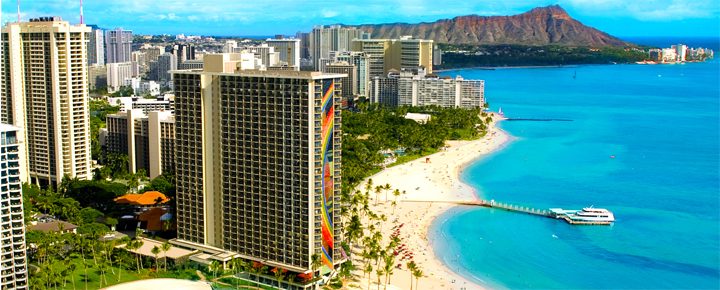There have been hundreds of comments in the past week about Hawaii vacation costs, and suggesting that Hawaii is ripping off visitors. That’s what gave us the idea for this article. It frankly just isn’t how some commentors would like to portray it, and it is complicated.
There have been many people blaming the state of Hawaii for the high costs of travel and questioning what the state does with their hard-earned dollars. And there’s no doubt that the cost of vacations is skyrocketing. We see it, too, when planning trips from Hawaii instead of to Hawaii.
Ideally, we’d like to think that at least most of the money we spend on a Hawaii vacation would make its way back to the local economy. Ideally, it would help local businesses and in doing so offset Hawaii tourism’s negative impact.
However, that isn’t exactly what’s happening. Most of the money spent in Hawaii doesn’t stay in Hawaii. For the large part, it ends up feathering the pockets of big companies with little to some Hawaii connection. That’s true for many tourist destinations globally.
The taxes you pay, however, do stay here and that’s up to the state, regarding what happens with that money. As you may know, Hawaii taxes everything including food, and both residents and visitors pay all taxes including those on accommodations. But that’s outside the scope of what we’re discussing here, and Hawaii’s taxation and spending of tax money is certainly something we might all question.
When you support a locally owned business, more of that money stays here.
We didn’t find great data on how much of your money stays in Hawaii, but we saw an interesting, and likely related piece from the United Nations. It said that in some places at least, as little as 5% of the money stays in the local economy. It pointed out that corporate hotels returned about 50% to the local economy, whereas locally owned accommodations retained more than 90% within the local economy.
How to increase the return of money spent to Hawaii’s economy.
Accommodations.
Large hotel chains aren’t owned in Hawaii. The money is shared between the owners, based elsewhere, and their management company. Not to say that many jobs aren’t being created locally, because they are. Are those high-paying jobs? Mostly not. So, simply put, much of the money visitors spend on accommodations doesn’t stay in Hawaii. And the rates charged are up to those corporations, which Hawaii has no control of.
The photo above features Hilton Hawaii Village in Waikiki. Park Hotels and Resorts own it. That company “is one of the largest publicly-traded lodging real estate investment trusts (REIT).” That’s the norm, rather than the exception, and a simple search of “who owns” yields this about virtually any Hawaii hotel.
If you stay at a vacation rental, chances are some of the money stays in Hawaii, depending on the circumstances. If you rent from Vacasa, that isn’t the case, while if you rent from a local management company, more of the money stays here. Also keep in mind that there is a share of the money split between the owner and the vacation rental management company. Most vacation rental home owners aren’t based in Hawaii. It’s estimated that more than ¾ of all Hawaii vacation rentals are owned outside Hawaii.
Where does expensive car rental money go?
The same is true at Hawaii car rentals. These are multi-national corporations which have cars and staff in Hawaii, but again, the bulk of the profit is exported and the jobs created aren’t generally high level.
What about restaurants.
Some restaurants, even chain ones, are locally owned. But that’s not always the case. One example is Roy’s restaurants, which are Hawaii-owned. And speaking of food, most of the food sold and consumed in Hawaii is not produced here. Therefore, food money be it from a grocery store or from a restaurant, is largely heading out of Hawaii.
Activities.
Most activities are likely to be island-owned and operated. That’s one industry you can normally be sure of.
Hawaii airline tickets.
Obviously the only airline with a strong Hawaii connection is Hawaiian Airlines. Certainly, Southwest, United and others have significant Hawaii workforces, but as with hotels, the jobs created aren’t for the most part, high-level. Hawaiian is the largest private employer in Hawaii, and their whole team is here. So that does return a much larger part of the money to the state. But even then, we can’t help but note that Hawaiian is a Delaware corporation, rather than a Hawaii corporation.
Things you can do.
- To support local, look for Hawaii-owned companies rather than national businesses. That helps to move the needle towards a more sustainable Hawaii tourism product.
- Seek out locally-owned restaurants, especially ones focused on locally grown food products. Shop at Hawaii farmers markets.
- Be suspicious. Research. Don’t assume something’s locally owned or produced, and do some checking and ask questions. Did you know, for example, that many of the inexpensive souvenirs visitors assume are from Hawaii are from the Philippines?
- Car rentals are more problematic because there’s a comfort level renting from national brands. Turo is problematic, but, on the other hand, it can be an option to go more local.
- Consider seeking out and staying at Hawaii-owned hotels and vacation rentals.
We look forward to your thoughts. Can you share examples of ways you’ve been able to help Hawaii by thinking locally instead of globally?







Other channels through which money spent in Hawaii moves out of state include building materials and home goods purchases (Home Depot, Lowe’s) as well as Helco. The major shareholders of all these three are the same East Coast investment firms.
Aloha, Regarding the last communication, Turo for cars, are generally provided by locals, as are VRBO and AirB&B rentals. Why are Hawaiian lawmakers so against their own people providing these services, and why aren’t the companies listed above being supported by Hawaiians?
I have had a vacation rental for 11 years. I employ a local cleaner who has her own business and employs others. I use local service people and businesses,handyman, painters, appliance repair, etc. I encourage Guests to support local businesses, food trucks, spas, restaurants. I donate to the food bank and human society.
Yet, Hawaii continues to make it difficult to have a vacation rental.Raising taxes.Adding new local TAT all in the name of trying to get lower housing costs. There is a lot of money generated, especially with the increase in values. My taxes are triple. But Hawaii has no solid plan to create affordable housing.
Local people need conveniently located, affordable housing.This is what the county council should be focused on.
Susan, I to own a vacation rental condo here on Maui for 17 years and totally agree. Until now, it is finally worth what I paid for it in 2005! Yet the politicians here have successfully made us out to be the bad guy, because the large hotels are in their pockets, and want all the money, they’ve done an incredible job of pitting people against STR’s which is really sad. I’m not the issue the big hotels are, and they continue to build them. All the funds from my condo stay right here in Hawaii, I pay hard working cleaners and handymen, site managers and exorbitant property taxes, condo dues, and mortgage payment. I Do Not charge the extras the hotels and management companies charge. All the money the state makes goes where?
My daughter and her husband live on Maui; it’s extremely difficult to find a house to buy there due to the short term vacation rental industry driving the prices up and depleting the supply of housing for all but the very wealthiest. In just a year the prices have doubled – this is a huge part of the reason younger educated residents end up leaving for the mainland. When no one is left to work on the islands what will happen to the few who can afford to live there wake up?
Thanks for an insightful article. Definitely makes one think. Unfortunately we need the large corporations from out of state with their greater financial capacity to sustain operations during downturns. Production cost resulting in competitive pricing is also a factor when thinking of souvenirs and such. There is no easy answer. Information on what businesses are local will help visitors who want to take the extra step to support locals, as suggested by another poster. But, will the Hawaii tourism bureau dare offend the Big Boys by doing more to promote patronizing local enterprises?
You stated: “Some restaurants, even chain ones, are locally owned. But that’s not always the case.”
Did you mean Some restaurants, even chain ones, are “NOT” locally owned?.
Hi,
Great article, eye opener! Since you have whetted our interest and curiosity, can Beat of Hawaii provide us a detailed list of Hawaii owned businesses? I realized that it would be a formidable task. Thank you! Steve Y
Hi Steve.
We have no plan to create and maintain that, but never say never. Thanks for the suggestion.
Aloha.
I liked your article. In all the years of renting condos, I don’t think I’ve ever rented a condo from a local Hawaiian. That brings up a question, what exactly is a local? We do tend to use local management for the rental of condos. Some islands are better at local car rentals than others. We’ve never had a problem with the local car rentals. However I agree, most of the monies generated by Hawaiian tourism go out of the state of Hawaii.
Aloha
Hi Roy.
Thanks. Good point. Maybe it would be useful to distinguish Hawaii-based or owned. And then does where you are incorporated matter, or just where your c-suite is, or your employees.
Aloha.
I would love to see a list as well! Great suggestion, Roy!
I know I am not there yet, but it actually a dream of mine to start a store that will morphe into onto a branch of shops across the islands that sell local product and hand made items from Hawaii only.
Some day. Sigh.
Delaware is the most common state for incorporation in the country because of its tax laws; where a company is incorporated is pretty immaterial in the grand scheme of things.